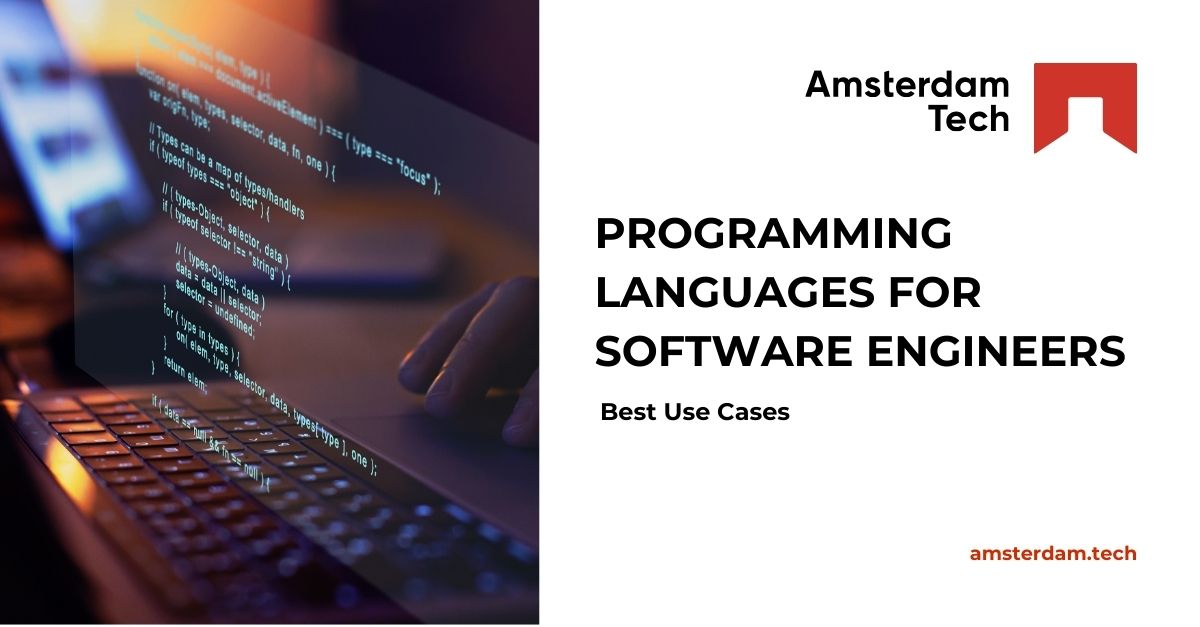
Top Programming Languages for Software Engineers
In software development, choosing the right programming language is akin to selecting the perfect tool for a craftsman. Each language comes with its own strengths, weaknesses, and specific areas where it shines. For software engineers, understanding the best use cases for various programming languages is crucial for efficient development and achieving desired outcomes. Let’s delve into some of the top programming languages and their respective best use cases.
Python:
- Python has solidified its position as one of the most versatile and beginner-friendly programming languages. Its clean syntax and vast ecosystem make it ideal for a wide range of applications, including web development, data analysis, artificial intelligence, machine learning, and scientific computing. Python’s readability and extensive libraries, such as NumPy, Pandas, and TensorFlow, make it a top choice for projects requiring rapid development and prototyping.
Best Use Cases:- Web Development (Django, Flask)
- Data Analysis and Visualization
- Machine Learning and Artificial Intelligence
- Scientific Computing
JavaScript:
- JavaScript is the cornerstone of web development, powering dynamic and interactive web applications. With the advent of Node.js, JavaScript has expanded its domain to include server-side development as well. Its asynchronous nature and event-driven architecture make it suitable for building real-time applications and single-page web applications (SPAs).
Best Use Cases:- Front-end Web Development (React.js, Angular, Vue.js)
- Back-end Web Development (Node.js)
- Mobile App Development (React Native, NativeScript)
- Game Development (using frameworks like Phaser)
Java:
- Java’s “write once, run anywhere” mantra has made it a stalwart in enterprise and Android development. Known for its robustness, scalability, and platform independence, Java is favored for building large-scale applications, web servers, and Android mobile apps. Its extensive standard library and strong community support make it a reliable choice for mission-critical projects.
Best Use Cases:- Enterprise Software Development
- Android App Development
- Web Application Servers (using frameworks like Spring Boot)
- Big Data Technologies (Hadoop, Apache Spark)
C/C++:
- C and C++ are revered for their performance and efficiency, making them indispensable in systems programming, game development, and resource-constrained environments. While C is closer to the hardware and used in operating systems and embedded systems, C++ offers higher-level abstractions and is preferred for game development and performance-critical applications.
Best Use Cases:- Systems Programming
- Game Development (using engines like Unreal Engine, Unity)
- Embedded Systems
- High-Performance Applications
Swift:
- Swift, developed by Apple, has rapidly gained popularity for iOS, macOS, watchOS, and tvOS app development. With its modern syntax, safety features, and performance, Swift offers a compelling alternative to Objective-C. Its interoperability with Objective-C allows developers to seamlessly integrate Swift code into existing projects.
Best Use Cases:- iOS, macOS, watchOS, and tvOS App Development
- Cross-platform Development (using frameworks like SwiftUI)
- Server-Side Development (using frameworks like Vapor)
SQL:
- Structured Query Language (SQL) is essential for managing and querying relational databases. From retrieving data to performing complex database operations, SQL is indispensable for software engineers working with data-driven applications. Understanding SQL is crucial for backend developers and data analysts alike.
Best Use Cases:- Database Management
- Data Analysis and Reporting
- Backend Development (integrating with programming languages like Python, Java)

In conclusion, the choice of programming language should align with the specific requirements and constraints of each software development project. While the languages mentioned above are among the top contenders in the industry, it’s essential to stay updated with emerging technologies and trends to remain competitive in the ever-changing landscape of software engineering. By leveraging the strengths of each programming language, software engineers can effectively tackle diverse challenges and bring innovative solutions to fruition.
